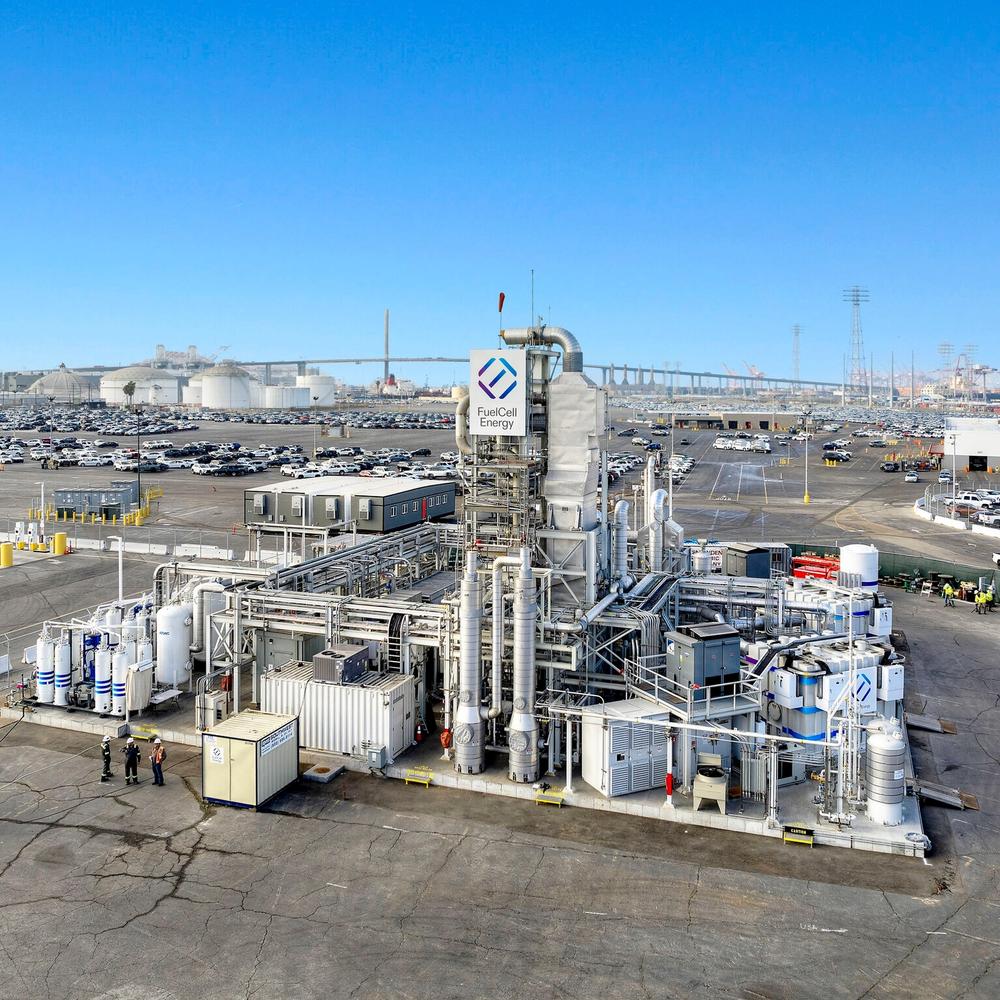Expanding Hydrogen Production in Southern California
FASTECH is proud to be the contractor of record in the successful completion of a groundbreaking Tri-gen project in Long Beach, California.
Owned, built and operated by Fuel Cell Energy (FCE), this first-of-its-kind facility revolutionizes sustainable energy production and supply at Toyota Logistics Services (TLS) Long Beach, supporting facility operations with 100% renewable energy. The system produces 2.3 MW of renewable electricity, part of which supports the processing of 200,000 new vehicles annually.
Tri-gen – a promising method of generating hydrogen – offers more cost-effective and environmentally-friendly solutions than existing alternatives. The Tri-gen project enables local hydrogen provisioning while generating renewable power, water, and heat products. In addition, it has generated abundant data and insights on expeditious and cost-effective design and construction of such plants.
Project Benefits and Implications
Though molten carbonate fuel cells (MCFCs) are not new technology, the Tri-gen project links the theoretical research and development of MCFC technology and its practical application. The technology utilized in this Tri-generation plant appeals to various industrial customers, such as those at ports, manufacturing facilities, and transportation/fleet hubs.
Whereas past projects have been focused on “co-generation” of heat and power, the Tri-gen project expands on the capability of MCFCs to produce hydrogen as a byproduct of the process, in a cleaner way than combustion-based steam-methane reformation technology.
This project serves as a stepping stone for the development of more multifaceted “poly-generation” plants that may be able to capture and re-use excess heat and CO2, in addition to producing electricity, water, and hydrogen.
It necessitates relatively low natural gas and water flows as incoming utilities, both widely available throughout the country. By harnessing natural gas and water, these users can make strides towards carbon neutrality, producing electricity, hydrogen, and other potential byproducts of the MCFC process to reduce their dependence on grid power and delivered hydrogen gas.
Toyota’s on-site facility now has cleaner and reliable sources of electrical power and hydrogen gas. It eliminates the need for hydrogen to be trucked in from other production facilities and dramatically improves their hydrogen station uptimes.



